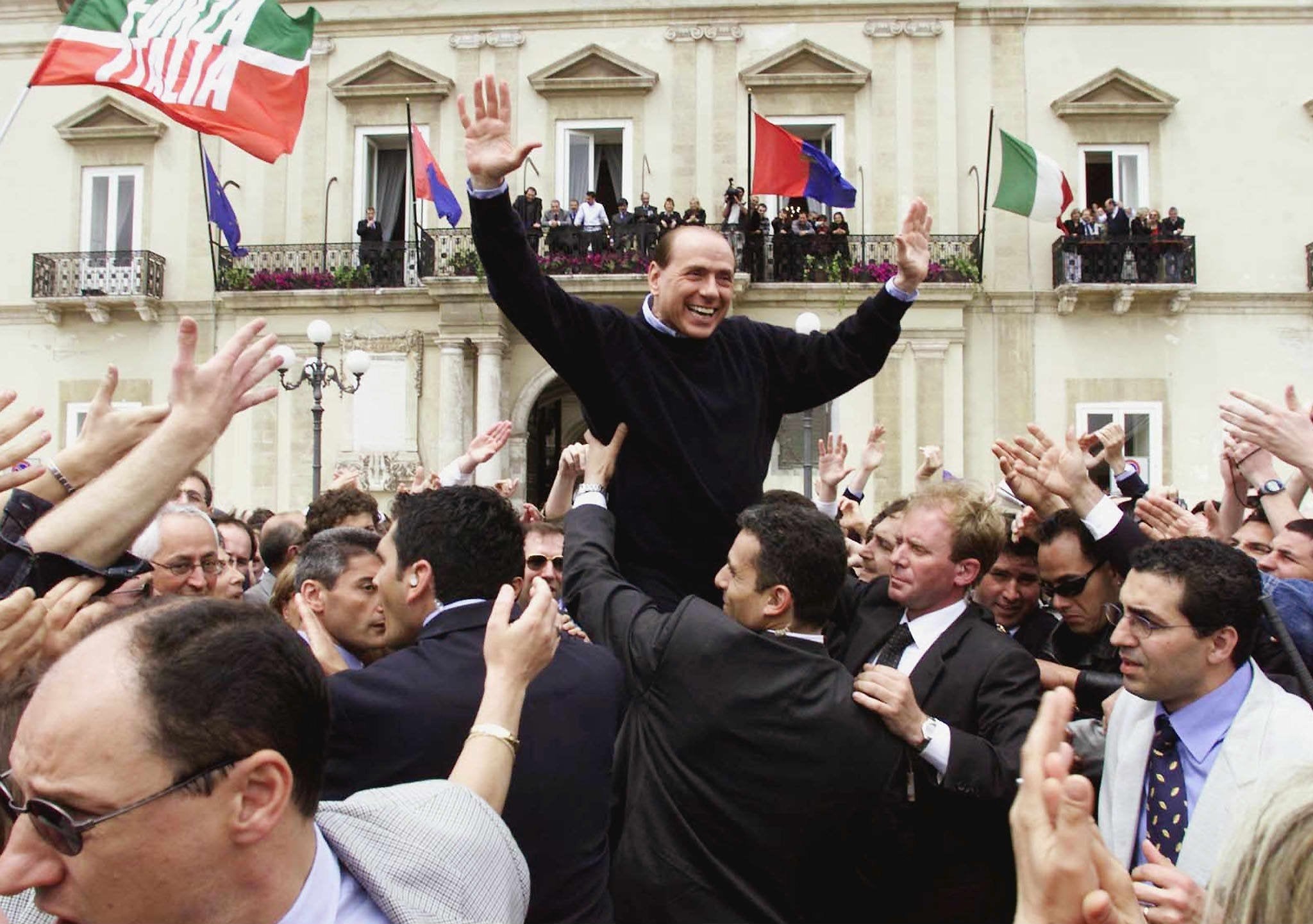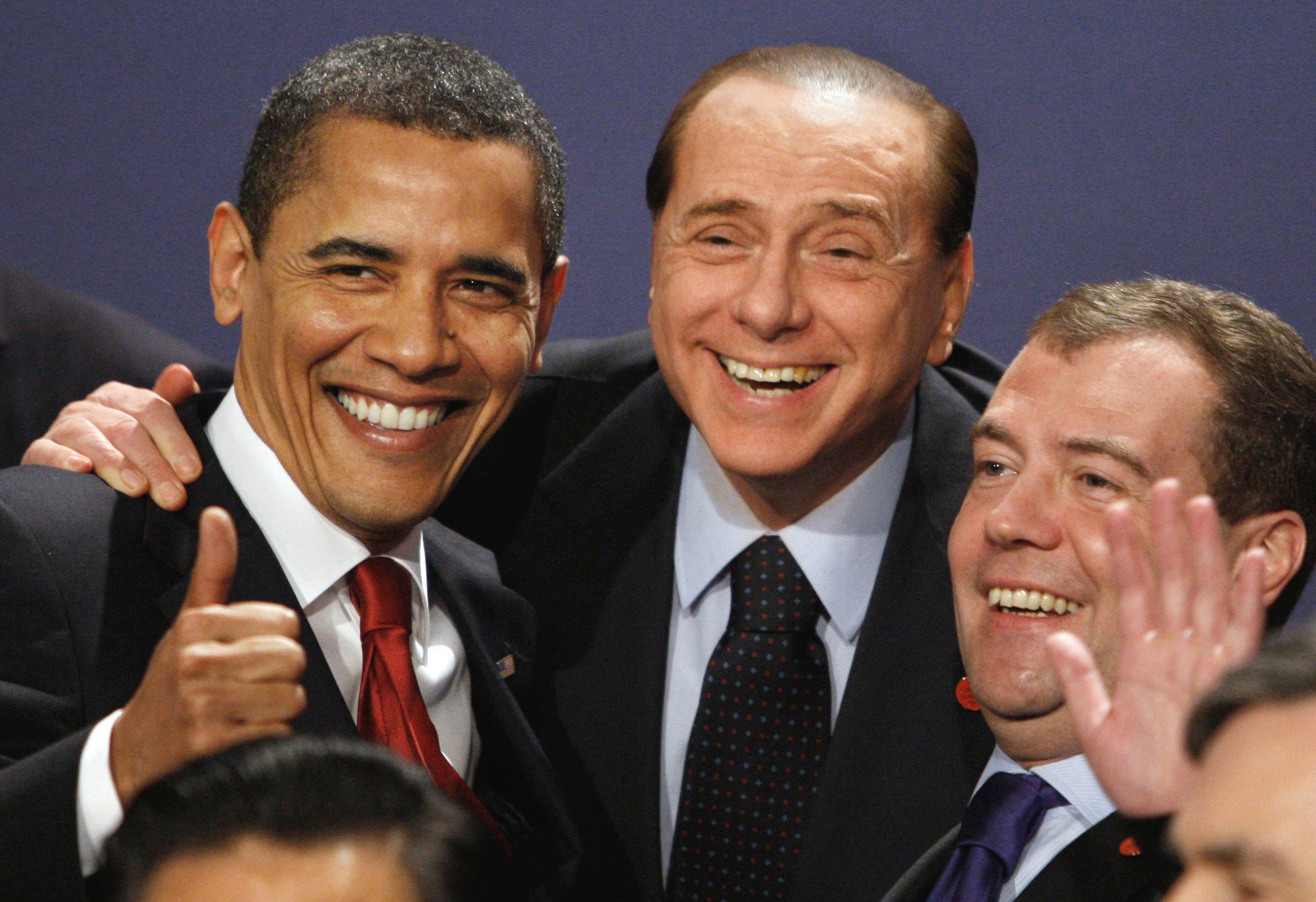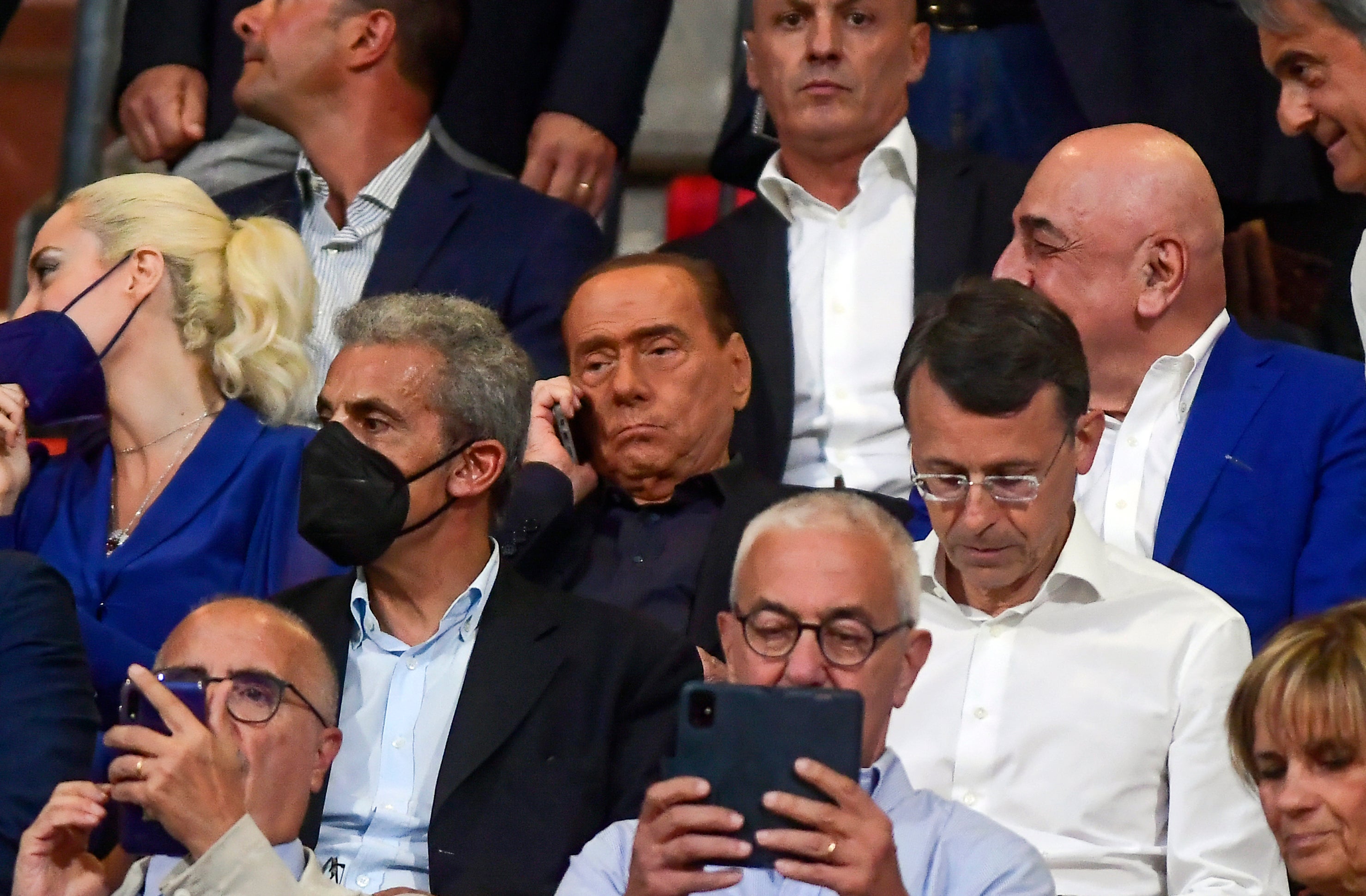Silvio Berlusconi: Former Italian PM plagued by tax fraud and ‘bunga bunga’ sex scandals dies aged 86
Three-time leader of Italy faced a number of corruption claims but achieved an unlikely political comeback
The former Italian prime minister Silvio Berlusconi has died at the age of 86.
Berlusconi, who amassed a fortune after founding Italy’s largest media company, had been suffering from leukaemia and recently developed a lung infection. He died at the San Raffaele hospital in Milan.
Berlusconi suffered from a range of health conditions in recent years, including prostate cancer and heart ailments, and spent a spell in hospital with Covid-19 in 2020.
He was readmitted to the same hospital in Milan on Friday, where he had also recently spent almost six weeks undergoing treatment for his lung infection. Doctors said he had chronic myelomonocytic leukaemia, a rare type of blood cancer but not one that is considered to be acute.
His personal physician, Dr Alberto Zangrillo, earlier said the lung infection was linked to the former prime minister’s leukaemia.
Italian defence minister Guido Crosetto expressed “great, enormous pain” over the news of Berlusconi’s death.
“He leaves a huge void, because he was a great,” he wrote. “It’s the end of an epoch, the closing of an era. I loved him very much. Goodbye Silvio.”
Berlusconi dominated Italian politics for almost 20 years, leading the centre-right party Forza Italia from 1994 to 2009 before taking the helm of successor party The People of Freedom until 2013.
The right-wing populist led four governments across three spells as prime minister of Italy – from 1994 to 1995, from 2001 to 2006, and again from 2008 to 2011.
His last few years in the country’s top job were marred by allegations of corruption and tales of “bunga bunga” sex parties at his lavish villa outside Milan.
He was accused of having unlawful sex with a 17-year-old nightclub dancer known only as “Ruby the Heartstealer” – but he was acquitted on appeal in 2014, after several women testified that his bunga bunga parties were merely “elegant dinners”.

Berlusconi made his name, and the bulk of his huge fortune, with his business dealings, beginning in the 1980s. He was the controlling shareholder of Italian media giant Mediaset, and owned the football club AC Milan from 1986 to 2017.
The tycoon was convicted of tax fraud in 2012 and was sentenced to four years’ imprisonment, later shortened to one year of community service. In 2019 he staged an unlikely political comeback by winning a seat in the European parliament.
Italian national news channels ran sombre coverage following the news of Berlusconi’s death, with Sky News’s foreign editor Andrew Connell noting that coverage on Sky TG24 was “something akin to the death of a royal”, describing the former prime minister as a “unique politician known well beyond Italy”.
Forza Italia forms part of the incumbent prime minister Giorgia Meloni’s far-right coalition government, but Berlusconi held no position in her cabinet, and the two clashed over the 86-year-old’s friendship with Vladimir Putin. Ms Meloni has voiced her strong support for Ukraine since the war broke out in February 2022.

On Berlusconi’s 86th birthday, while the war raged, Mr Putin sent him best wishes and vodka, and the Italian boasted that he had returned the favour by sending back Italian wine.
Mr Putin paid tribute to his “dear” friend in a message of condelence issued by the Kremlin. It read: “For me, Silvio was a dear person, a true friend. I have always sincerely admired his wisdom, his ability to make balanced, far-sighted decisions even in the most difficult situations.”
Matteo Salvini, Italy’s deputy prime minister and leader of the far-right League party, posted a lengthy tribute on Twitter to “one of the greatest ever, in all fields, from all points of view, without equal”.
Former centre-left prime minister Matteo Renzi referred to Berlusconi’s divisive legacy in his own tribute on Monday. “Silvio Berlusconi made history in this country. Many loved him, many hated him. All must recognise that his impact on political life, but also economic, sport and television, has been without precedence,” he wrote.

Political blogger Dario D’Angelo tweeted: “Whether you loved him or you hated him, it matters little today. With Silvio Berlusconi goes a part of your life. Of our life.”
Berlusconi controlled his business empire through Fininvest, a family holding company with assets worth €4.9bn (£4.2bn) at the end of 2021. Before his death, he owned 61.3 per cent of Fininvest, while Pier Silvio and Marina Berlusconi, his two children from his first marriage, each owned a 7.65 per cent stake.
The future of his business interests will likely depend on how he has chosen to distribute his 61 per cent stake between his five children from two marriages. Eldest daughter Marina is expected to play a prominent role, though Berlusconi never publicly named a successor to take charge of the company.
Join our commenting forum
Join thought-provoking conversations, follow other Independent readers and see their replies
Comments
Bookmark popover
Removed from bookmarks